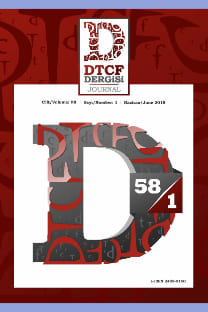İRONİ VE FARKINDALIKLA DİNO BUZZATİ
Dino Buzzati (16 Ekim 1906, Belluno, İtalya - 28 Ocak 1972, Roma), oyun yazarı, kısaöykü yazarı ve romancı, kurgusu ve oyunlarıyla uluslararası üne sahip bir İtalyangazeteci olarak, kariyerine 1928'de Milano'da günlük Corriere della Sera'da başlamışolmasıyla, “geleneksel gerçekçilik” tarzında yazılmış iki romanı ile (Barnabò dellemontagne (1933; “Dağların Barnabosu”) ve Il segreto del bosco vecchio (1935); “AntikOrmanın Sırrı”), gerçek üstücülüğü ve sembolizmi işleyen ilk ve alanındaki tek yazardır.Her ne kadar Buzzati'nin en iyi romanı Il deserto dei Tartari (1940; Tatar Çölü) ise desınırdaki bir askeri karakoldaki garnizon birliklerinin, asla gelmeyen ve ileri gidemeyenveya geri çekilemeyen bir düşman beklentisiyle hazırlandığı güçlü ve ironik bir hikâyeyiişlemesi, kendi tarzına ayrı bir dokunuşu ifade etmekte, tüm diğer dünya yazarlarındanonu farklı kılmaktadır. Yine, yazarı olması ile değişik kategorilerden kabul edilecek olanmasal alanında da koleksiyonları mevcut olan Buzzati, daha önce yayınlanmış I settemessageri (1942; Yedi Haberci) ve Paura alla scala (1949; Merdivendeki Terör) adlıromanları içeren Sessanta racconti (1958; Altmış Öykü) ayrı bir değerlendirme ve literatüraçısından incelenmeye muhtaçtır. Diğer birçok çalışmasının isimleri ve detaylarındanziyade bu makale, Buzzati 'nin bahsettiğimiz ilk ve tek olmasının sebep ve özellikleriniirdelemeye yöneliktir. Yine Buzzati'nin Kafka'dan etkilenmesine rağmen, ayrı biryeteneğe ve kendine özgü bir ironi ve mizaha sahip olması, bu irdeleme açısından anahtarniteliğinde olabilir. Buzzati'nin çalışmasını kesin bir tarihsel çerçeveye yerleştirerek veonun "oryantalizmi" sorununu tartışmak ayrı bir çalışma konusu olsa da Buzzati'ninAfrika'daki çalışmasının İtalyan sömürgeciliğinin bir belgesi olarak okunabileceğini veklişeler açısından doğrulandığını göstermek, işte o zekâ ve ironi için örnek teşkiledebilmektedir.
IRONI AND AWARENESS IN DINO BUZZATI
Dino Buzzati (October 16, 1906, Belluno, Italy - January 28, 1972, Rome), playwright, short story writer and novelist, began his career as an Italian journalist internationally renowned for his fiction and plays, starting his career in Milan in 1928 at the daily Corriere della Sera. With his two novels written in the style of "traditional realism" (Barnabo delle montagne (1933; "Barnabus of the Mountains") and Il segreto del bosco vecchio (1935); "The Secret of the Ancient Forest"), he was the fşrst and first in his field to deal with surrealism and symbolism. Although Buzzati's best novel is Il deserto dei Tartari (1940; “The Tatar Steppe”), its handling of a powerful and ironic story in which garrison troops at a border military post are prepared in anticipation of an enemy who never arrives and cannot go forward or retreat. His expresses a different touch, makes it different from all other world writers. Buzzati, who also has collections in the field of fairy tales, accepted from different categories as an author, also includes Sessanta racconti (1958; “Sixty Stories”), which includes the previously published novels I sette messageri (1942; “Seven Messengers”) and Paura alla scala (1949; “Terror on the Staircase”) needs to be evaluated separately and examined in terms of literature. Rather than the names and details of many of his other works, this article aims to examine the reasons and features of Buzzati's being unique in the abovementioned field. Again, although Buzzati was infiuenced by Kafka, the fact that he has a distinct talent and a unique irony and humor may be the key to this examination. To show that Buzzati's work in Africa can be read as a document of Italian colonialism and validated in terms of clichés is an example for wit and irony, though placing Buzzati's work in a precise historical framework and discussing the problem of his "orientalism" a separate topic.
___
- Akova, Murat. "Biyoterörizm: Dünü ve bugünü" Ankem Dergisi (2002): 250-253.
- Buzzati, Dino. Tatar Çölü. Çev. Nihal Önol. İstanbul: Can Yayınları, 1996.
- Buzzati, Dino. Sessanta Racconti. Mondadori, 1994.
- Bozkurt, Nejat. Sanat ve Estetik Kuramları. İstanbul: Sarmal Yayınevi, 1992.
- Bauhet, Delphine. Dino Buzzati d'hier et d'aujourd'hui: à la mémoire de Nella Giannetto. Actes du colloque international, Besançon, Presses universitaires de Franche-Comté, 2009.
- Panafieu, Yves, Janus. "Propositions Pour Un Décryptage Sociologique Et İdéologique De L’oevrue De Dino Buzzati" Laffont. Paris,1989.
- Sbacchi, Alberto. "I Rapporti italo-etiopici tra il 1935 E il 1941, Le Guerre Coloniali Del Fascismo" Ed. Angelo Del Boca, Bari, Laterza, 1991: 469-500.
- Todorov, Tzvetan. The Fantastic: A Structural Approach to A Literary Genre. Ithaca, Ny: Cornell Univ. Press, 1975.
- Vattimo, Gianni. The End of Modernity. Çev. By J. S. Snyder. Cambridge: Polity Press, 1988.
- Venuti, Lawrence. Restless Nights: Selected Stories of Dino Buzzati. North Point Press, 1984.
